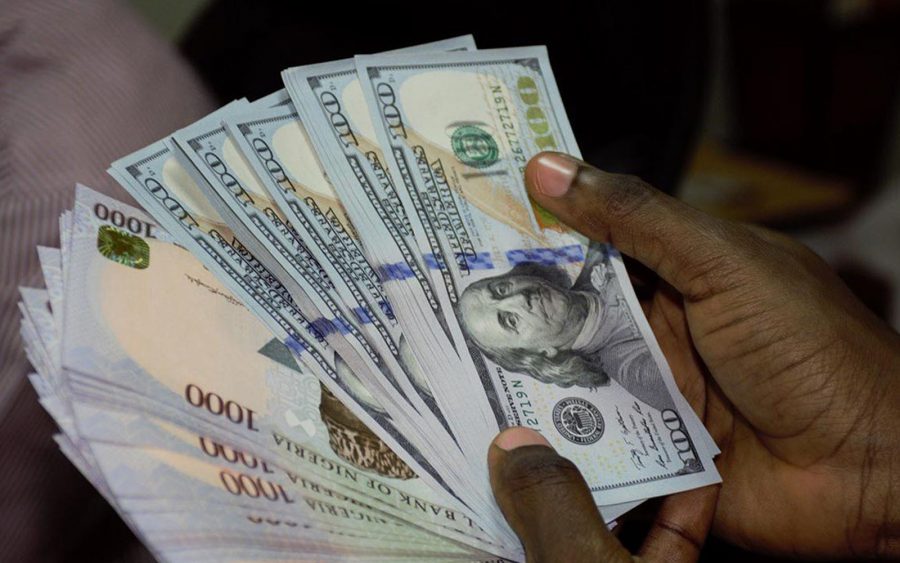Nigeria’s external reserves have continued its free fall by suffering a major drop within the last two weeks as the Central Bank of Nigeria (CBN) data reveals the nation’s foreign reserves fell by $1.1 billion during the period.
Though the external reserves currently stand at $42.92 billion as at Tuesday, October 16, however, CBN data shows it stood at $44.03 billion on the 2nd of October, 2018. As at the 28th of September, the foreign reserves balance was $44.31 billion, before falling to $43.97 on October 3 and $43.26 billion on October 12.
Nigeria’s foreign reserves rose to a year high ($47.8 billion) on the 25th of June, 2018, but have since failed to hit the $48 billion mark. It has instead dropped by $4.86 billion in the last five months.
IMF Warning
Only last week, the International Monetary Fund (IMF) cautioned Nigeria against using its foreign reserves, warning that crude oil price could fall again at any time.
In its latest Regional Economic Outlook, the Breton Wood institution emphasised that tighter global financial conditions resulting from normalisation of unimagined monetary policy in advanced economies or unexpected change in investor’s sentiments could limit financing and growth for several African nations.
Why The Fall
A few days ago, the CBN Governor, Godwin Emefiele, explained that the fall in external reserves is not peculiar to Nigeria alone, as the reserves of other emerging frontier markets have been dropping because of rising interest rates in the developed economies.
Emefiele added that foreign investors, particularly those with portfolio investments that earlier invested in the Nigerian capital market are returning their funds to their home nations. He said the exit of the investors has created a huge gap in the Nigerian economy and those of other developing economies.
According to him:
“At this time where we are beginning to see reversal in development policy, where interest rates are rising, naturally, those flows are beginning to return back to where they came from.
“Practically, all emerging and frontier markets have suffered not just depreciation, but also, they have lost reserves.”
Reserve Buffers or Naira Stability
Unfortunately for the CBN, amidst this current economic situation, it only has a choice to make between building foreign reserves or maintain the current position of the currency. The apex bank said a few days ago that it prefers maintaining a stable exchange rate than building external reserves, adding that Nigeria can only build reserve buffers if the nation wants to hold on to her reserves and allow the value of Naira to depreciate.
Therefore, it seems the CBN has made a choice of keeping the Naira stable than keeping the foreign reserves. This decision is not a bad one after all, as it will enable businesses to make proper plans. It will also avoid problems in the banking system assets because of the wide ramifications it may cause.
Why External Reserves Still Matters?
However, Nairametrics is of the opinion the foreign reserves still matters in several ways:
- The nation is in the electoral season and the polity is becoming hotter by the day, as the 2019 election approaches. Going by revelations from the last general elections in 2015, that the then administration allegedly withdrew several billions of dollars from the national treasury; this drop may, therefore, create suspicion.
- One of the reasons the CBN has been able to maintain Naira stability, in recent months, is by drawing from the reserves to defend the currency.
- The foreign exchange rate remains the single most important metric for measuring how well the economy is fairing.
- The CBN sold dollars in the interbank market a few months ago, as liquidity squeeze threatened rates at the Investor and Exporter window.
- The Nigerian Stock market has also recorded a string of losses in the second and third quarter of 2018 with low foreign investor participation seen as one of the reasons why.
- Nigeria’s vile political climate is also a possible risk that could be a deterrent to future foreign investor inflow in the market.
What Next
- We always advocate that you hold a mixture of dollar-denominated and Naira denominated assets.
- Follow the performance of the stock market as a bellwether for investor sentiments about the market.
- At the moment, there are no major immediate concerns that the Naira will depreciate.
- The one elephant in the room continues to be the militants. So long as they remain quiet, we can rest assured that the economy will stay resilient.

























